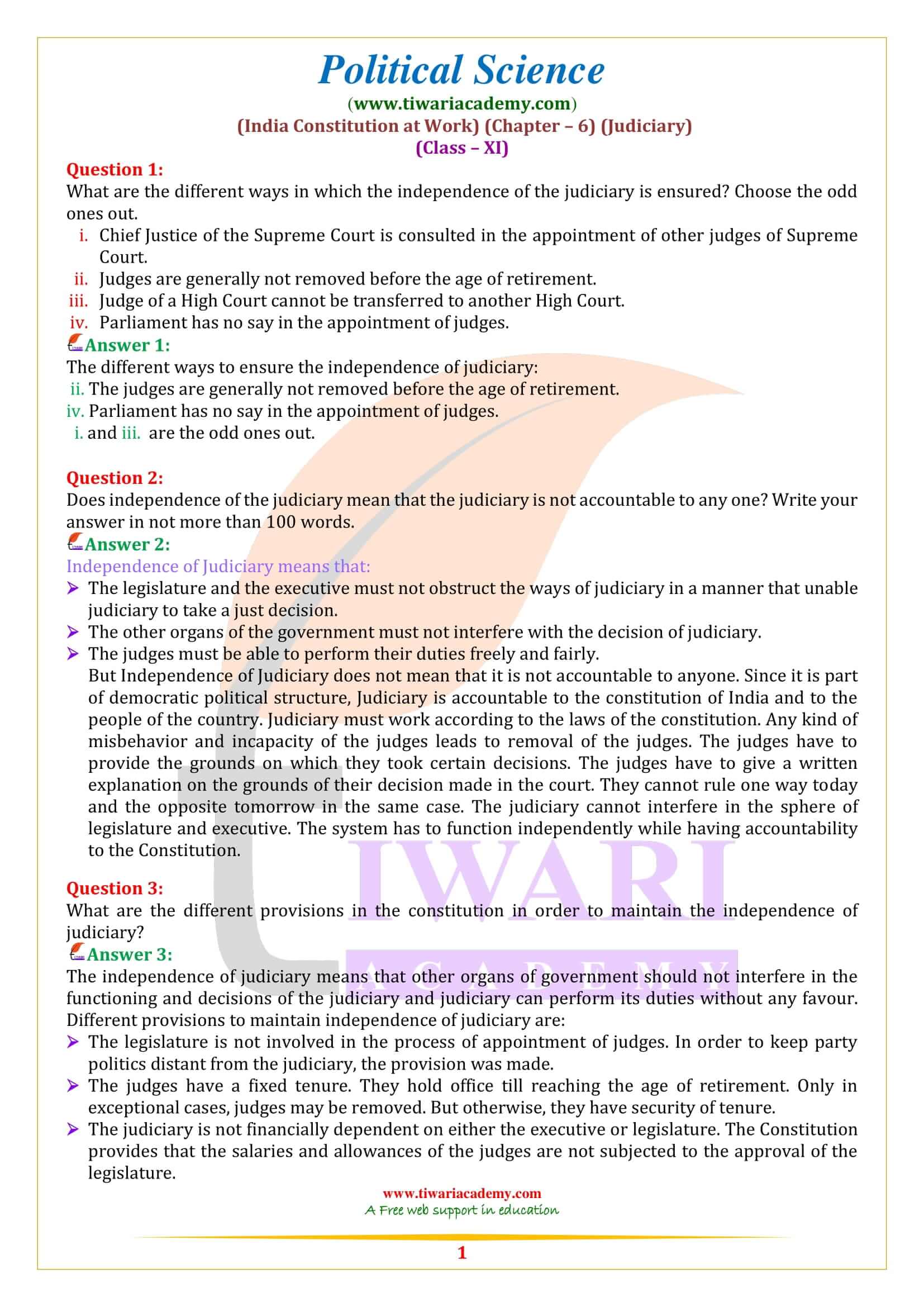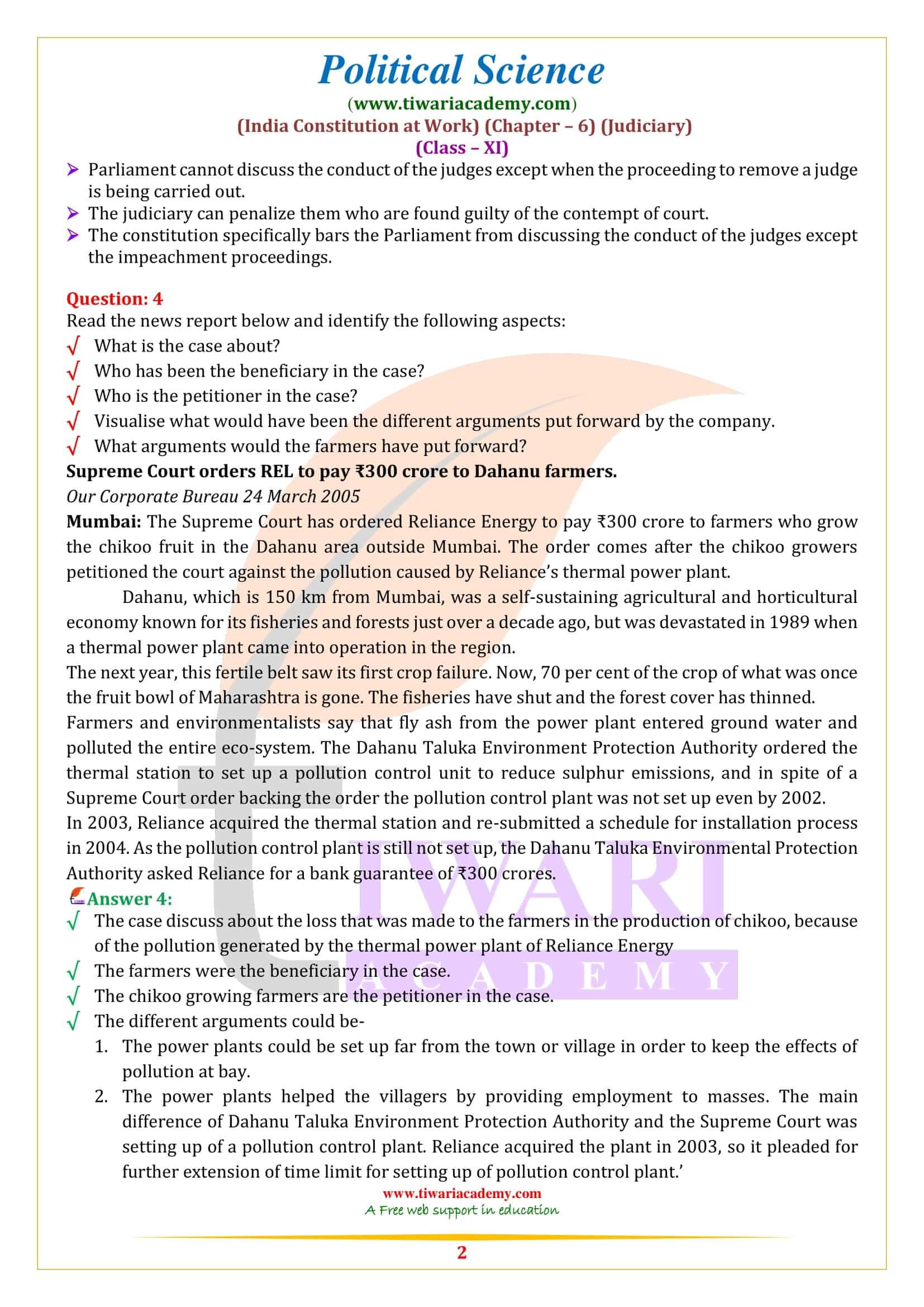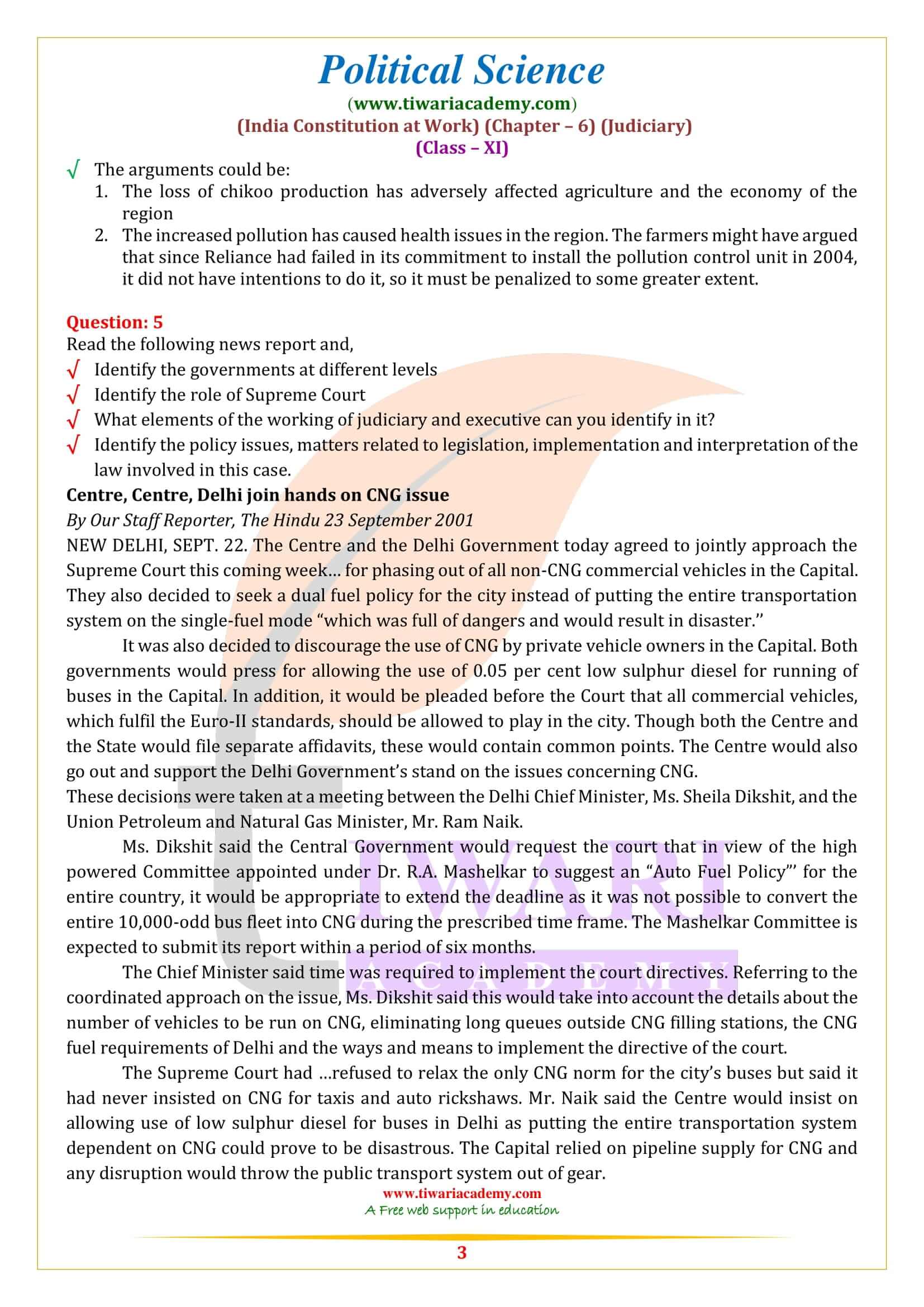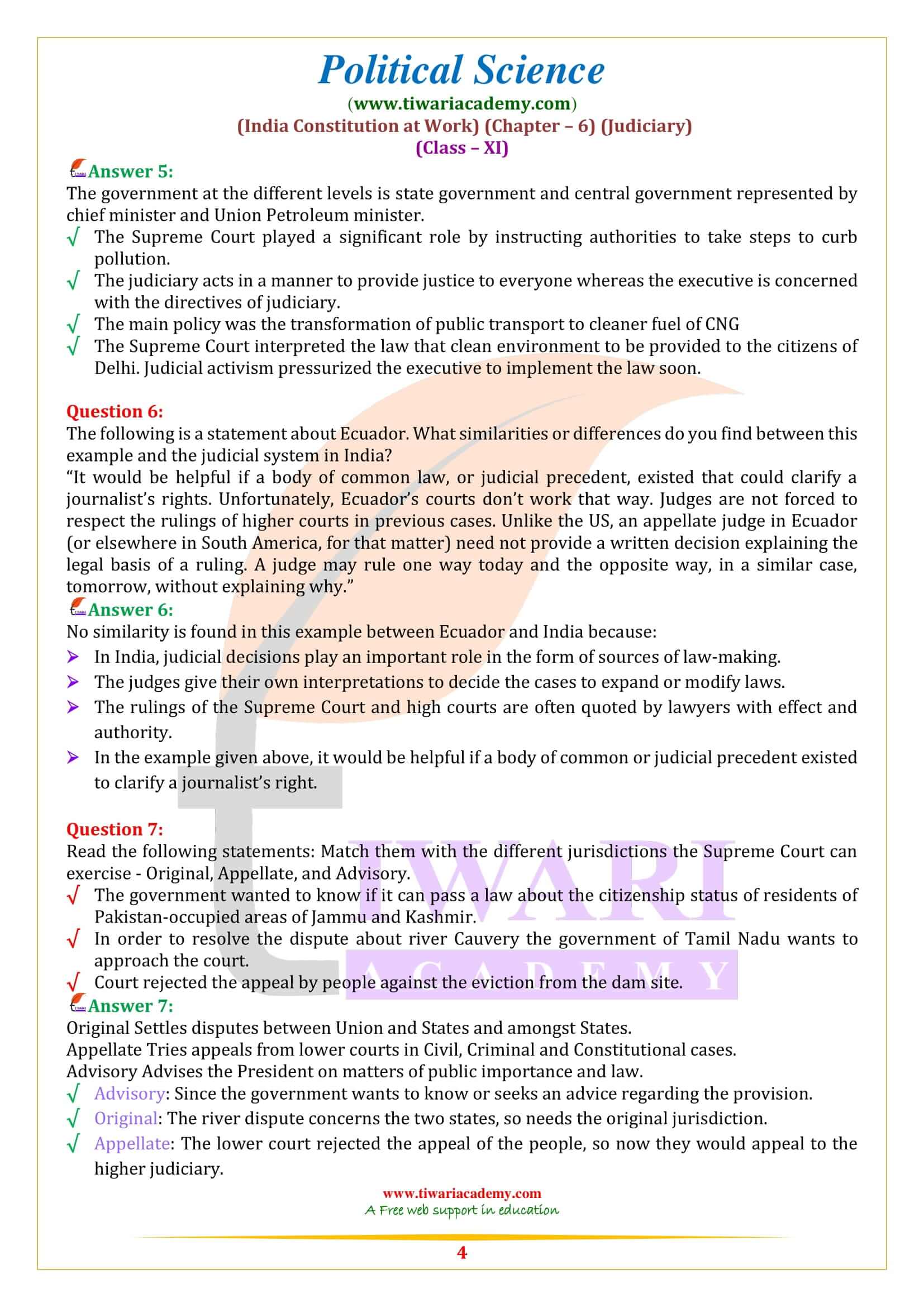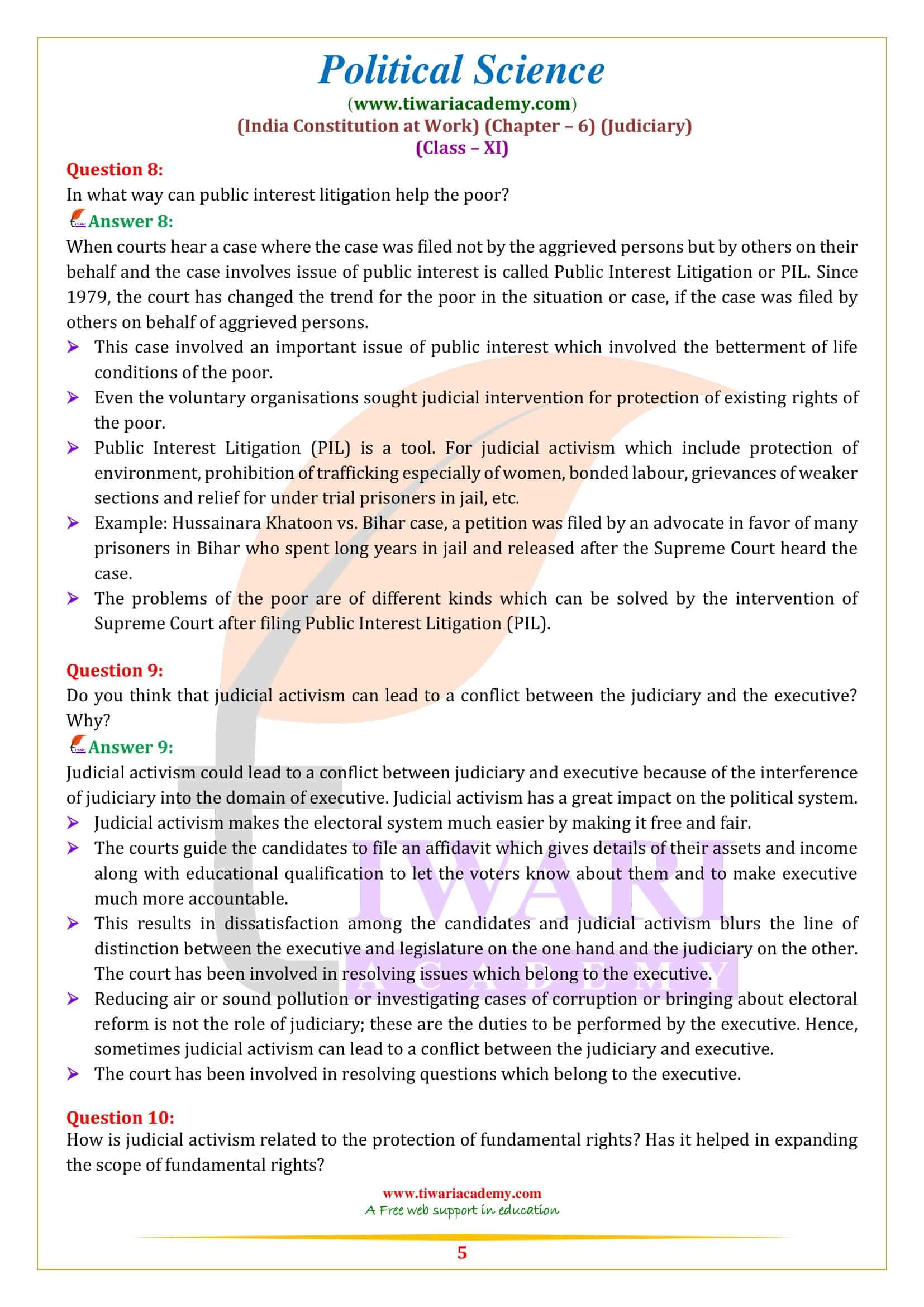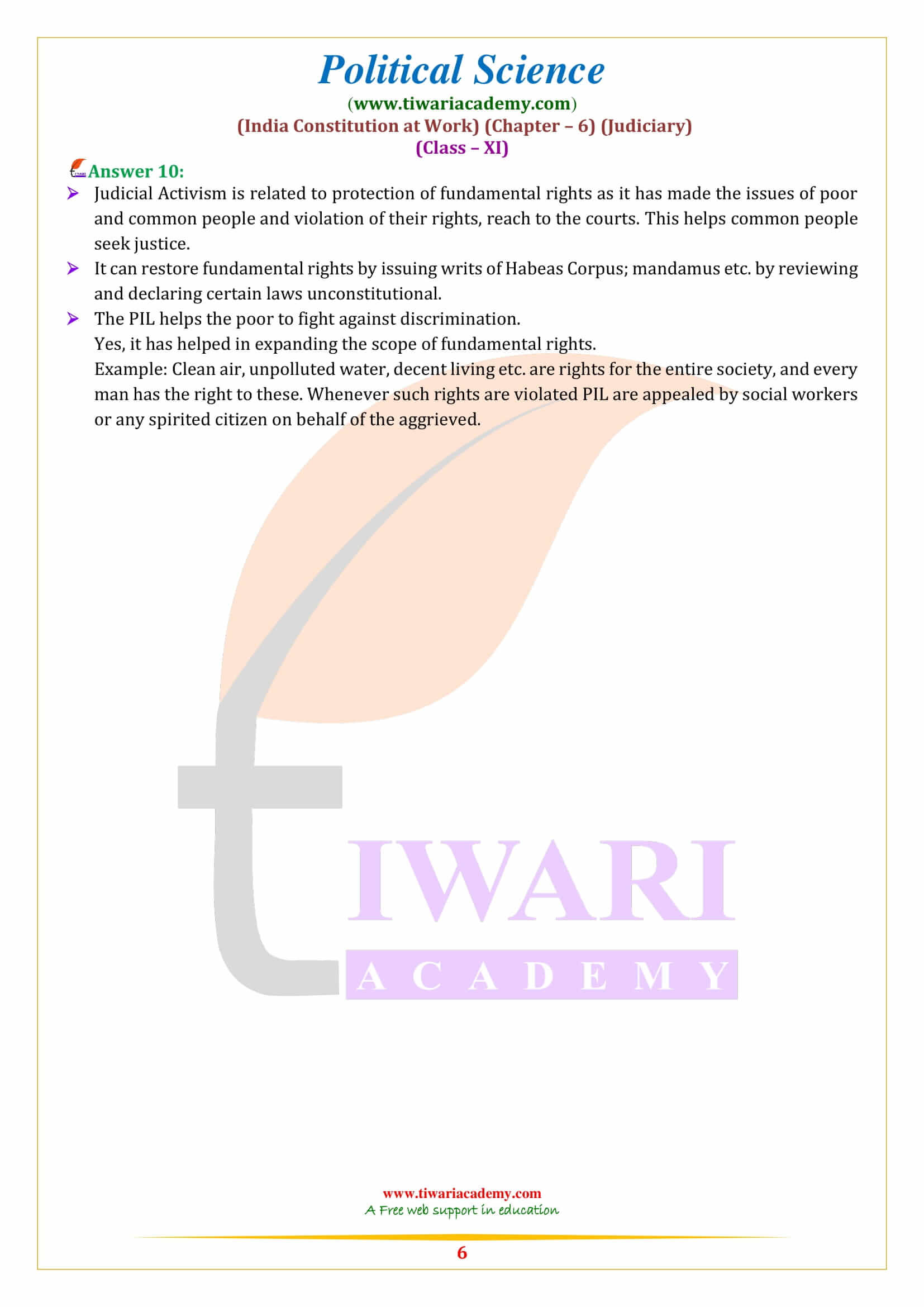NCERT Solutions for Class 11 Political Science Chapter 6 Judiciary in Hindi and English Medium all its important question answers updated for new session 2025-26. These questions answers of Indian Constitution at Work in class 11 Political Science chapter 6 are important for both CBSE and State board.
NCERT Solutions for Class 11 Political Science Chapter 6
Does independence of the judiciary mean that the judiciary is not accountable to any one? Write your answer in not more than 100 words.
Independence of Judiciary means that:
- The legislature and the executive must not obstruct the ways of judiciary in a manner that unable judiciary to take a just decision.
- The other organs of the government must not interfere with the decision of judiciary.
- The judges must be able to perform their duties freely and fairly.
But Independence of Judiciary does not mean that it is not accountable to anyone. Since it is part of democratic political structure, Judiciary is accountable to the constitution of India and to the people of the country. Judiciary must work according to the laws of the constitution. Any kind of misbehavior and incapacity of the judges leads to removal of the judges. The judges have to provide the grounds on which they took certain decisions. The judges have to give a written explanation on the grounds of their decision made in the court. They cannot rule one way today and the opposite tomorrow in the same case. The judiciary cannot interfere in the sphere of legislature and executive. The system has to function independently while having accountability to the Constitution.
What are the different provisions in the constitution in order to maintain the independence of judiciary?
The independence of judiciary means that other organs of government should not interfere in the functioning and decisions of the judiciary and judiciary can perform its duties without any favour. Different provisions to maintain independence of judiciary are:
- The legislature is not involved in the process of appointment of judges. In order to keep party politics distant from the judiciary, the provision was made.
- The judges have a fixed tenure. They hold office till reaching the age of retirement. Only in exceptional cases, judges may be removed. But otherwise, they have security of tenure.
- The judiciary is not financially dependent on either the executive or legislature. The Constitution provides that the salaries and allowances of the judges are not subjected to the approval of the legislature.
- Parliament cannot discuss the conduct of the judges except when the proceeding to remove a judge is being carried out.
- The judiciary can penalize them who are found guilty of the contempt of court.
- The constitution specifically bars the Parliament from discussing the conduct of the judges except the impeachment proceedings.
In what way can public interest litigation help the poor?
When courts hear a case where the case was filed not by the aggrieved persons but by others on their behalf and the case involves issue of public interest is called Public Interest Litigation or PIL. Since 1979, the court has changed the trend for the poor in the situation or case, if the case was filed by others on behalf of aggrieved persons.
- This case involved an important issue of public interest which involved the betterment of life conditions of the poor.
- Even the voluntary organisations sought judicial intervention for protection of existing rights of the poor.
- Public Interest Litigation (PIL) is a tool. For judicial activism which include protection of environment, prohibition of trafficking especially of women, bonded labour, grievances of weaker sections and relief for under trial prisoners in jail, etc.
- Example: Hussainara Khatoon vs. Bihar case, a petition was filed by an advocate in favor of many prisoners in Bihar who spent long years in jail and released after the Supreme Court heard the case.
- The problems of the poor are of different kinds which can be solved by the intervention of Supreme Court after filing Public Interest Litigation (PIL).
Do you think that judicial activism can lead to a conflict between the judiciary and the executive? Why?
Judicial activism could lead to a conflict between judiciary and executive because of the interference of judiciary into the domain of executive. Judicial activism has a great impact on the political system.
- Judicial activism makes the electoral system much easier by making it free and fair.
- The courts guide the candidates to file an affidavit which gives details of their assets and income along with educational qualification to let the voters know about them and to make executive much more accountable.
- This results in dissatisfaction among the candidates and judicial activism blurs the line of distinction between the executive and legislature on the one hand and the judiciary on the other. The court has been involved in resolving issues which belong to the executive.
- Reducing air or sound pollution or investigating cases of corruption or bringing about electoral reform is not the role of judiciary; these are the duties to be performed by the executive. Hence, sometimes judicial activism can lead to a conflict between the judiciary and executive.
- The court has been involved in resolving questions which belong to the executive.
How is judicial activism related to the protection of fundamental rights? Has it helped in expanding the scope of fundamental rights?
Judicial Activism is related to protection of fundamental rights as it has made the issues of poor and common people and violation of their rights, reach to the courts. This helps common people seek justice.
1. It can restore fundamental rights by issuing writs of Habeas Corpus; mandamus etc. by reviewing and declaring certain laws unconstitutional.
2. The PIL helps the poor to fight against discrimination.
Yes, it has helped in expanding the scope of fundamental rights.
Example: Clean air, unpolluted water, decent living etc. are rights for the entire society, and every man has the right to these. Whenever such rights are violated PIL are appealed by social workers or any spirited citizen on behalf of the aggrieved.
